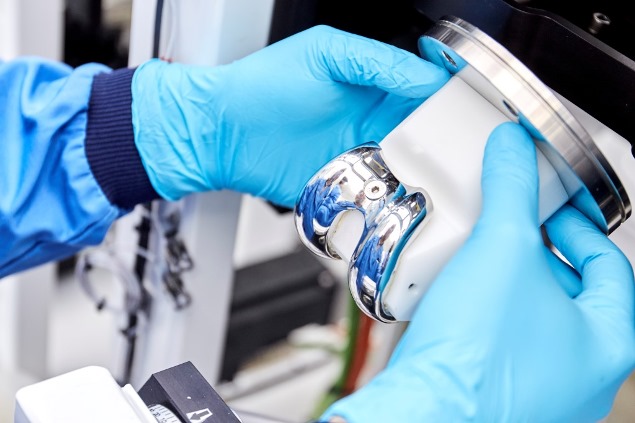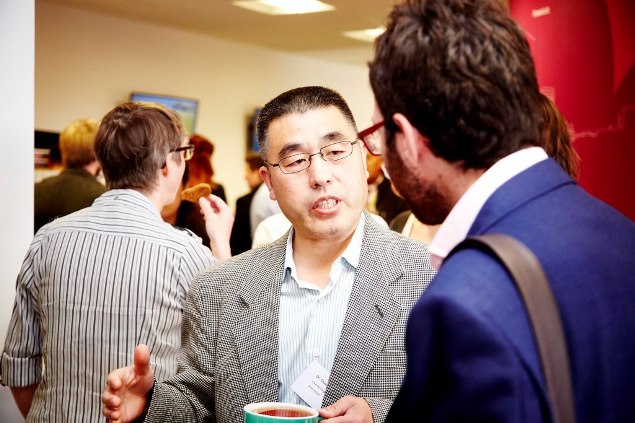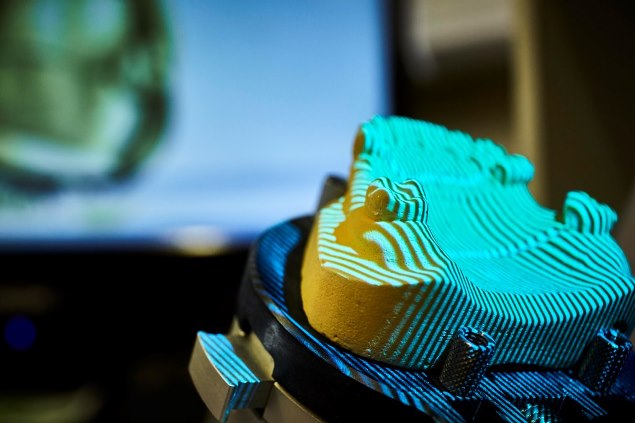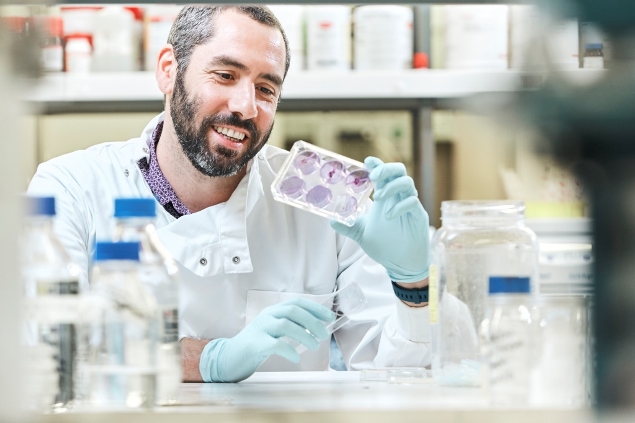Archive for October 2019
Woundhealing regenerative gel
A gel that combines with regenerative cells from the omentum, the fatty layer inside the abdomen, is being developed to support wound healing following colorectal surgery.
Read More
SAFER implant testing for knee repair
Researchers at the University of Leeds Institute of Medical and Biological Engineering are using an approach they call SAFER – Stratified Approaches for Enhanced Reliability.
Read More
Biomimetic scaffold for large joint repairs
A UCL team working to design an osteochondral scaffold that can repair large joint defects has been awarded an Innovate UK grant to develop ways of manufacturing the device. The early development of the biomimetic scaffold was supported through the IKC’s partnership with Arthritis Research UK, which enabled it to be tested in sheep and […]
Read More
A hard and fast approach to repairing tooth enamel
A prototype device that can repair damaged tooth enamel – developed thanks to IKC proof of concept funding – is ready to be trialled in human volunteers. The device, which lead researcher Professor Animesh Jha describes as looking ‘a bit like a water pistol’, delivers a synthetic calcium phosphate material directly to the tooth where […]
Read More3D printed alloys can match stiffness of bone
Orthopaedic surgeons are accustomed to carrying out joint repairs using devices made from titanium – but although it has many of the properties needed for success, titanium is many times stiffer than bone, and can cause deterioration in surrounding tissue. Researchers at Imperial College London are working with additive manufacturing experts, Renishaw, to design implants […]
Read MoreMicrospheres deliver stem cells for bone repair
Microspheres that deliver stem cells to accelerate bone repair and regeneration are being developed through a collaboration between the University of Nottingham and Johnson Matthey. Supported by an IKC Industrial Partnership Award, the research will explore whether silicate-based bioglass microspheres, can be manufactured into highly porous microspheres. These would be injected via small needles directly […]
Read MoreShining light on cartilage
A joint Arthritis Research UK and IKC proof of concept award has enabled a diagnostic tool for early stage cartilage disease to move closer to commercialisation. The tool is based on a technology called Raman spectroscopy, which uses lasers to identify the composition of materials. Combined with an optical probe, the technique can be used […]
Read More
Innovative technology for human joint repair
A key element of the IKC’s work focuses on supporting research to improve the successful integration of implants in the body. A particular emphasis is on composite tissues – a combination of soft tissue such as tendons and the bone to which it is attached. Underpinning these projects is a novel technique, developed at the […]
Read More
‘Hearing’ hip dysplasia in infants
An electronic acoustic sensor that can detect hip dysplasia in newborn babies could better equip doctors to identify the condition – and reduce the need for children to have corrective surgery after late diagnosis. Daniel Perry, a consultant surgeon at Liverpool’s Alder Hey Children’s Hospital is leading the project, called SHINE – Screening the Hips […]
Read MoreCartilage repair device starts trial
A clinical trial of an arthroscopic brush that may enhance cartilage repair is underway in Leeds, to provide the evidence needed for full commercialisation of the device. The brush device was developed by Dr Thomas Baboolal from the University of Leeds, with proof of concept funding from the IKC. The trial is looking at its […]
Read More
